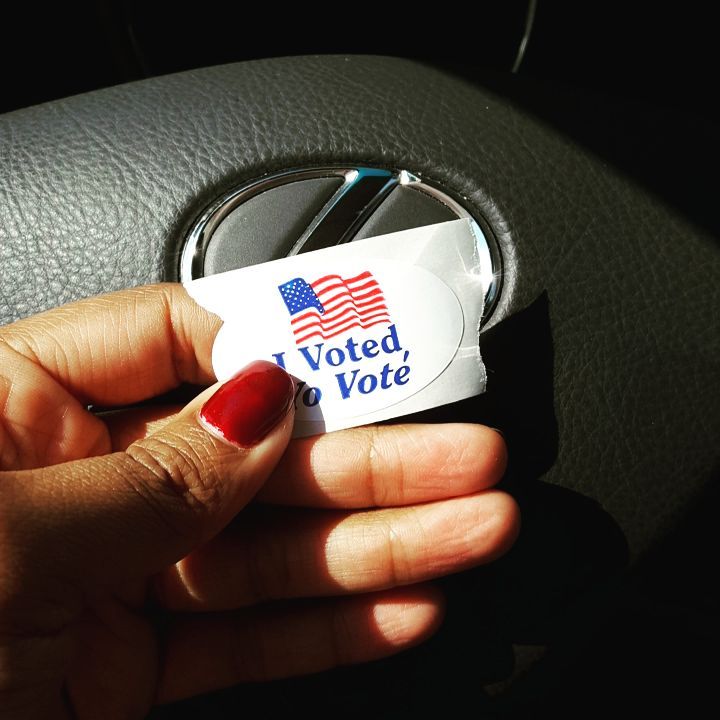Originally published on October 27, 2016 at http://www.fossilfreepcusablog.org/blog/breaking-down-walls-a-collaborative-response-to-climate-change

Environmental advocates on all sides of the PC(USA)’s divestment debate at June’s General Assembly meeting were dismayed, if not depressed, by the outcome. We entered the week with one widely supported overture from Fossil Free PCUSA and 31 presbyteries, three well supported overtures from Faithful Alternatives and 9 presbyteries, a report from the Committee on Mission Responsibility Through Investment (MRTI), and a thoughtful substitute motion crafted by the Advisory Committee on Social Witness Policy. These all envisioned substantive ways to grow the church’s action against climate change. But we emerged from a deeply flawed process with only a sliver of what we had collectively brought.
On the positive side, Fossil Free’s efforts gave legs to the church’s historic concern about climate change. Not all Presbyterians agreed with categorical divestment as a strategy. But the urgency of global warming and the commitment to make immediate changes were affirmed across the board. Fossil Free’s energy and vision seem to have sparked other attempts to address the crisis. In addition to MRTI’s process—prioritizing corporate dialogue and making specific demands—other new opportunities are dawning:
- Faithful Alternatives members in the Synod of the Sun recommended economic strategies such as advocacy for global carbon pricing, as well as directives to reduce consumption at all levels and to protect those most affected by climate change and its mitigation.
- The Presbyterian Foundation created a new fossil free investment option.
- The Presbyterian Investment and Loan Program offered a Restoring Creation Loan for clean energy.
- In all, between Fossil Free and Faithful Alternatives, forty presbyteries stepped up to endorse strong measures to combat climate change. And during the Assembly and in the months following, both groups have moved their platforms closer together to support climate justice efforts.
In short, the church amassed a great pile of raw materials from which to build a robust movement.
___________________________________________
In all, between Fossil Free and Faithful Alternatives, forty presbyteries stepped up to endorse strong measures to combat climate change.
___________________________________________
Something more is happening, something hardly to be expected last June. Mike Cole (general presbyter of New Covenant Presbytery and a Faithful Alternatives member), Abby Mohaupt (Fossil Free moderator and a Presbyterians for Earth Care member), and Rob Fohr (lead staff person for MRTI), have assembled folks from the three groups and others to collaborate on our shared concerns.
 At the invitation of Austin Seminary’s president Ted Wardlaw, a small group met on campus in mid-October to discuss MRTI’s role and other initiatives we might pursue together. In addition to representatives from Fossil Free, Faithful Alternatives, and MRTI, the meeting was attended by Rebecca Barnes from Environmental Ministries of the Presbyterian Hunger Program, Rick Young from the Texas Presbyterian Foundation, representatives from the Board of Pensions, and others deeply concerned about the PC(USA)’s role in addressing climate change, including myself.
At the invitation of Austin Seminary’s president Ted Wardlaw, a small group met on campus in mid-October to discuss MRTI’s role and other initiatives we might pursue together. In addition to representatives from Fossil Free, Faithful Alternatives, and MRTI, the meeting was attended by Rebecca Barnes from Environmental Ministries of the Presbyterian Hunger Program, Rick Young from the Texas Presbyterian Foundation, representatives from the Board of Pensions, and others deeply concerned about the PC(USA)’s role in addressing climate change, including myself.
We heard various reflections, most strikingly from Austin Seminary’s dean David Jensen, who laid out a Reformed approach to social and economic engagement, and Rob Fohr and other MRTI members, who reviewed the history of corporate engagement and phased selective divestment. We carried out several guided conversations around these points.
And then, recognizing that MRTI’s work is a “necessary but insufficient” tool, we discussed what else the church can foster, starting with the forty presbyteries that concurred with the Fossil Free or Faithful Alternatives overtures.
This was a huge agenda for a single day: former rivals around a single table, seeking to collaborate on realities that both unite and divide us.
___________________________________________
According to NASA’s scorecard, every single “committee” came up with a better outcome than any individuals had.
___________________________________________
The conversation reminded me of a day thirty years ago when I was an Austin Seminary student. We were given an exercise in decision-making: choosing survival tools for a hypothetical space expedition. No one had come to class that day expecting to make decisions lying well outside our experience and expertise. We worked alone first, and then in groups. We sallied forth with more confidence in our own judgment than in the thoughts of classmates with whom we were thrown together. But according to NASA’s scorecard, every single “committee” came up with a better outcome than any individuals had. I learned that day that collaboration is difficult; it requires humility; it demands give and take; and it works.
 It was clear in this meeting as well that individuals came with diverse tools, priorities, and experience, as well as diverse trust and diverse propensities to humility and shared leadership. There were more men than women by far, more Faithful Alternatives, and more Texans (including myself). Yet I for one found hope in the dedication to work toward shared solutions that Mike, Abby, and Rob modeled for us.
It was clear in this meeting as well that individuals came with diverse tools, priorities, and experience, as well as diverse trust and diverse propensities to humility and shared leadership. There were more men than women by far, more Faithful Alternatives, and more Texans (including myself). Yet I for one found hope in the dedication to work toward shared solutions that Mike, Abby, and Rob modeled for us.
Given historic and ongoing ties between some petroleum companies and climate denial, I am not optimistic that enlightening CEOs is possible for us, even in concert with other faith groups. But since we have never done this before with fossil fuel, I can’t say whether blanket divestment, selective divestment, or corporate engagement is the silver bullet we’re looking for. As tools, both divestment and shareholder activism have merits.
Perhaps one way to diversify the effort is for individuals, congregations, and presbyteries who know they don’t have resources for engagement to choose divestment—both because of the threat of stranded assets and, more importantly, because it’s our ethic to invest in what benefits society—and let MRTI continue its process to encourage good corporate citizenship, reveal the worst players, and act accordingly. As an individual, for example, I won’t be attending shareholder meetings, so I had already diverted my retirement savings to fossil-free Parnassus and Paxworld funds. Some churches and bodies, such as the Synod of the Northeast, are also divesting. The Presbyterian Foundation’s new fossil free instruments make this even easier.
___________________________________________
I hope to see the Presbyterian grassroots put its money, and time, where its mouth is. We are very practiced at theologizing, but lofty words, no matter how righteous, cannot directly change atmospheric carbon content.
___________________________________________
More crucially, I hope to see the Presbyterian grassroots put its money, and time, where its mouth is. We are very practiced at theologizing, but lofty words, no matter how righteous, cannot directly change atmospheric carbon content. Only our actions can do that.
Over the past five years, First Presbyterian Church in Jeffersonville, IN—the only church situated geographically between the Presbyterian Center in Louisville, KY and the Presbyterian Foundation’s offices in Indiana—has worked hard to lower its energy demand. According to the EPA’s portfolio manager, since 2011 we have reduced our greenhouse gas emissions by 21.3% and our annual bills by 31.2% (nearly $4000). Part of this is through solar panels we installed last year with help from Hoosier Interfaith Power & Light. But most is through energy conservation. In coming weeks, we expect to do more, changing fluorescent fixtures to LEDs, updating appliances, and installing another solar array.
 We can’t talk our way there. We’ve had to do hard tasks we didn’t come expecting to do at church: monitor bills; open 2×4 troffers and disconnect wires; watchdog thermostats; call the insulation folks; shut down wasteful stoves; close doors between zones; raise awareness and money. At the same time, we’ve had a lot of help not only through utility rebates and the EPA, but also through energy conservation workshops, through members with relevant skills and convictions, through years of cultivating Earth Care values in the leadership and congregation.
We can’t talk our way there. We’ve had to do hard tasks we didn’t come expecting to do at church: monitor bills; open 2×4 troffers and disconnect wires; watchdog thermostats; call the insulation folks; shut down wasteful stoves; close doors between zones; raise awareness and money. At the same time, we’ve had a lot of help not only through utility rebates and the EPA, but also through energy conservation workshops, through members with relevant skills and convictions, through years of cultivating Earth Care values in the leadership and congregation.
Throughout the PC(USA) there are many churches like ours—in fact, another 190 who are certified Earth Care Congregations—who can help lead the way. It’s time to encourage a much broader movement—solar panels on every church roof, or at least deep cuts in every church’s carbon pollution.
Achieving carbon neutrality and a safe future will require changes in national policy and corporate behavior. It will also require local conservation. I hope every individual, congregation, and presbytery who spoke up about climate change this year will help grow the grassroots movement to transform the energy—both social and environmental—that powers our beloved denomination.
*****
AUTHOR BIO: Patricia K. Tull’s most recent book is Inhabiting Eden: Christians, the Bible, and the Ecological Crisis (Westminster John Knox, 2013). She has written on Isaiah, Ruth, Esther, interfaith issues, preaching, and the history of biblical interpretation. An ordained Presbyterian minister, she is also A.B. Rhodes Professor Emerita of Old Testament at Louisville Seminary in Kentucky, has led travel seminars to Israel and Palestine for twenty years. She serves currently as program director for Hoosier Interfaith Power & Light. Listen to one of her webinars or find out more about her work at https://inhabitingeden.blogspot.com/. Contact her at [email protected].






Unbound Social